Published September 2019
Contents
- Full report
- Introduction
- Overview
- Which of the following skills do you see as important in economics graduate appointees to your organisation?
- How do you rate the general skills of economics graduates?
- Knowledge and understanding of which of the following areas do you see as important in economics graduates?
- Which skills (general and specific) and knowledge do you believe most need to be developed further in economics degrees?
Full report
Click here to download the full report.
Introduction
This is the Economics Network's fifth survey of employers of economics graduates. The aims of the survey are to:
- improve understanding of the skills economics graduates need in the workplace
- establish whether employers think current economics graduates generally possess the required skills and knowledge
- reveal any clear shortfalls in order to inform the UK economics academic community
The results below will also inform our project on project on student employability.
Overview
A total of 40 employers participated in The Economics Network’s 2019 Employers Survey, with the main employers being involved in the central government, consultancy and public sector services.
When asked why they hire economics graduates, the most common answer given by the employers is ‘they will work as an economist’, followed by ‘skills they bring with them’ and ‘general knowledge and understanding of economics is useful’ (please note that respondents can give more than one reason).
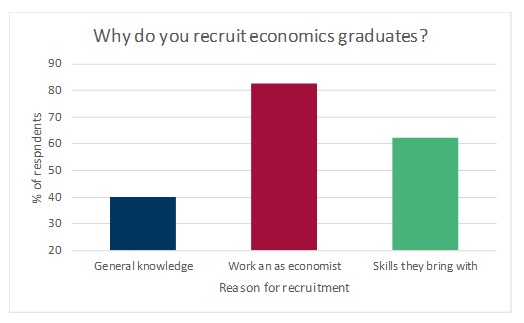
Which of the following skills do you see as important in economics graduate appointees to your organisation?
The two most common skills to be rated as ‘very’ important are ‘abstraction’ (defined here as the ability to simplify complexity while still retaining relevance) and an ‘ability to analyse economic, business and social issues’ (77.5% and 82.5% respectively). ‘Ability to organise, interpret and present quantitative data’ and ‘communication of economic ideas’ also seem to be considered important by employers, with 73.2% and 75.6% answering ‘very’. These results are similar to the 2014-15 Employer Survey run by the Economics Network, where the same four skills receive the highest proportion of ‘very important’ responses.
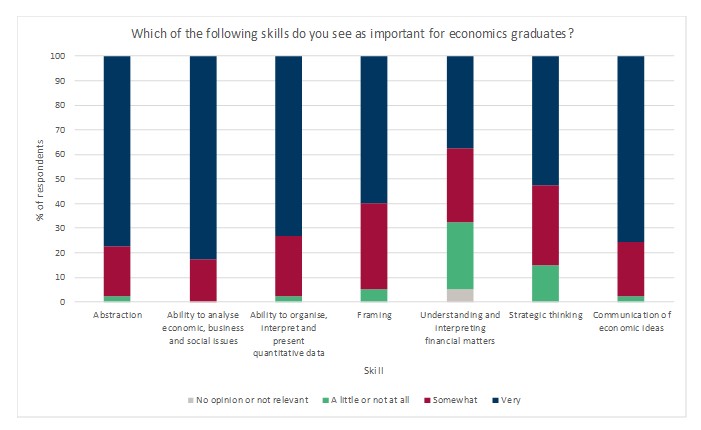
How do you rate the general skills of economics graduates?
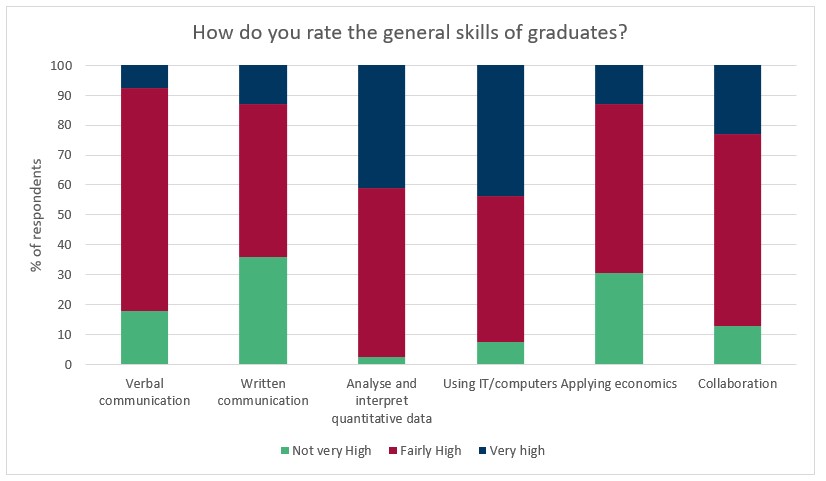
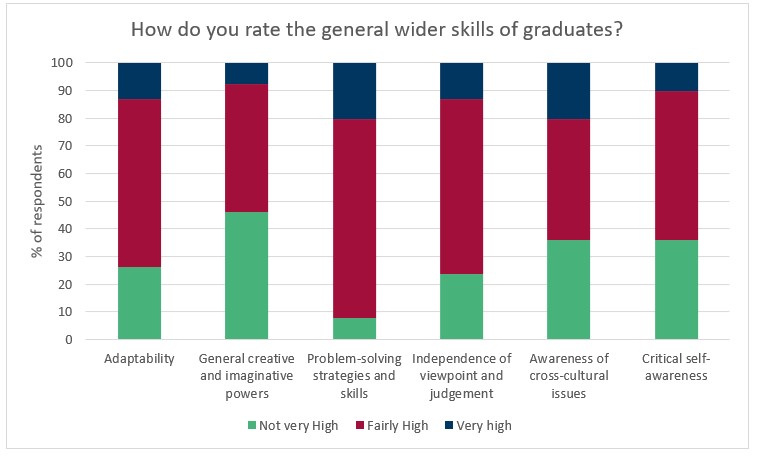 Economics graduates are most likely to be considered to have ‘very high’ levels of proficiency for ‘the ability to analyse and interpret quantitative data’ (41.0%) and ‘a fluency in using IT/computers’ (43.6%).
Economics graduates are most likely to be considered to have ‘very high’ levels of proficiency for ‘the ability to analyse and interpret quantitative data’ (41.0%) and ‘a fluency in using IT/computers’ (43.6%).
There are numerous skills for which over one third of respondents believe economics graduates’ skills are ‘not very high’: ‘general creative and imaginative powers’ is the most common at 46.2%, and ‘the ability to communicate clearly in writing’, ‘awareness of cross-cultural issues’ and ‘critical self-awareness’ are all rated ‘not very high’ by 35.9% of employers. The ‘ability to apply to what has been learned in a wider context’ also scores poorly, with 30.8% responding ‘not very high’ and just 12.8% replying ‘very high’. This is alarming given that application of knowledge is consistently rated as one of the most important skills for economics graduates to have by both employers (evidence from this survey and previous surveys by the Economics Network).
Knowledge and understanding of which of the following areas do you see as important in economics graduates?
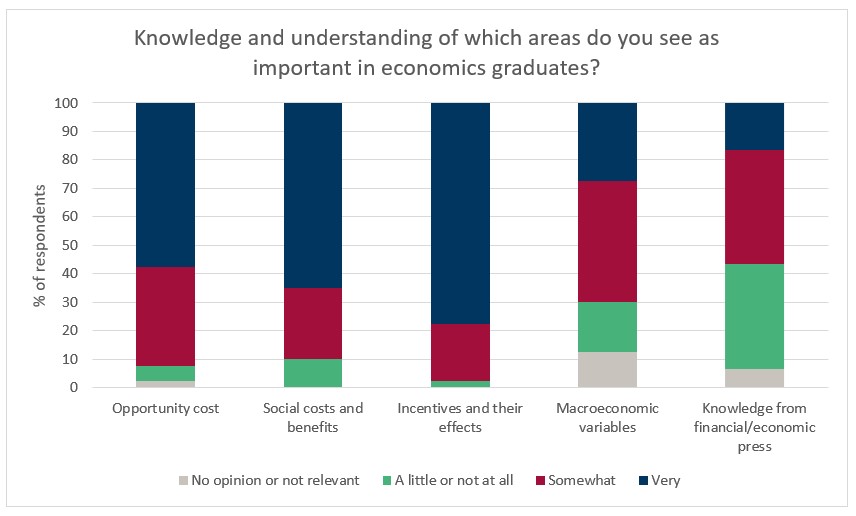
* To see the full list of concepts and how they are rated by employers, see the full report.
77.5% of employers say it is “very” important for graduates to understand “incentives and their effects”, far ahead of the next highest rated concept of “social costs and benefits” (65.0%). The least important concept is “knowledge derived from reading financial/economic press”, with only 16.7% rating the concept as “very important”.
Employer tastes across time remain broadly unchanged, with the proportion of respondents replying “very” to each concept similar to previous years.
Which skills (general and specific) and knowledge do you believe most need to be developed further in economics degrees?
 Word cloud taken from employers' text responses to this question.
Word cloud taken from employers' text responses to this question.
11 organisations listed applying economics to the real world as an area where economics graduates need the most development, with a typical comment being: "ability to use economics to tackle a problem by starting simple and then adding complexity/detail” or “the practical application of economic theory to solving public policy questions”.
17 respondents gave answers pertaining to communication, for the most part written as well as to non-experts. Typical comments include “Communicating to non-economists and clarity of writing”; “ability to communicate (often complex) economic ideas to non-economists”.
↑ Top
